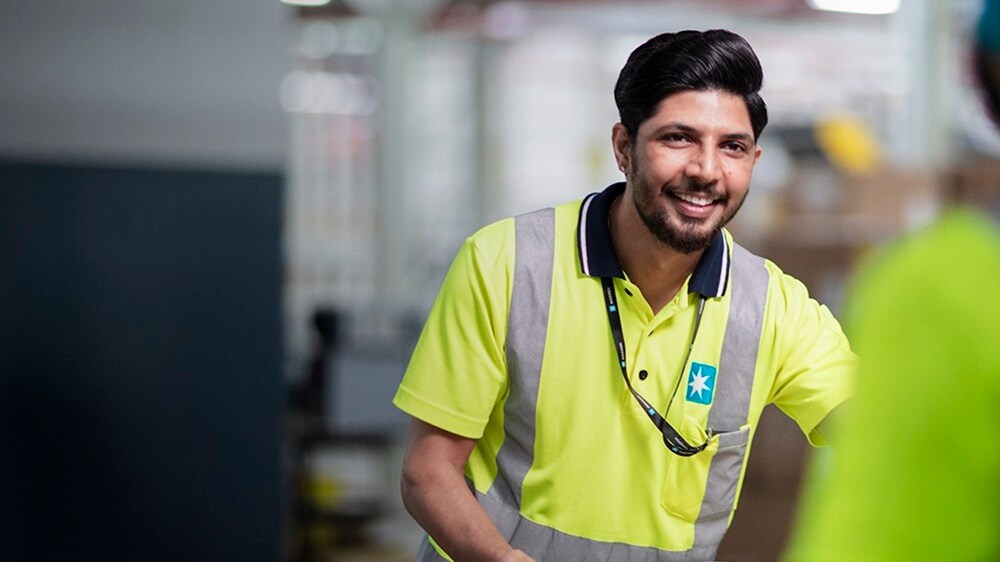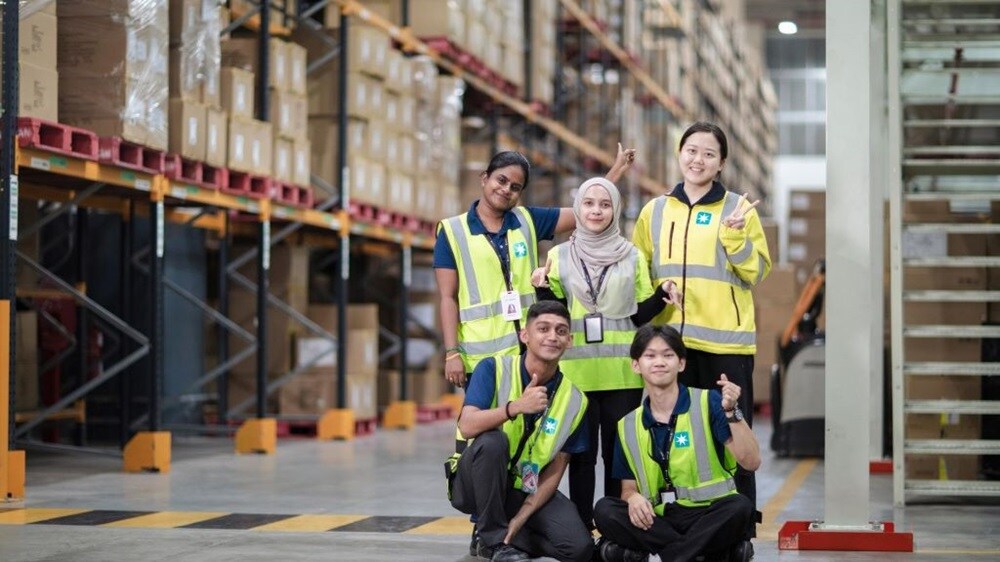
The history and heritage of A.P. Moller - Maersk
Connecting the world for more than a century.
Building strong foundations: Legacy of the founding Family
The foundations for the values that guide Maersk today were first laid in the late 1800s in Villa Anna – the family home in the little Danish town of Svendborg. It was here that Anna and Peter Mærsk Møller raised their ten children, one of whom – A.P. Møller – would go on to found Maersk.
The values they instilled in their children were handed down through the generations, and before stepping down from the chairmanship in 2003, Mærsk Mc-Kinney Møller introduced the five core values to ensure that they would remain a constant in the company for generations to come.

The values are the load-bearing pillars of Maersk.
Our values connect and guide us
Our values inspire us to do better in a constantly changing world. See how they guide us every day.
Our core valuesFrom humble beginnings
Peter Mærsk Møller came from a long line of sailors, and first went to sea as a cabin boy in 1850. After passing the examination allowing him to be a ship’s mate in 1855 and gaining experience both at sea and on land, sailing became Peter Mærsk Møller’s career. In 1862, he took up a position with the shipowner Jeppesen in Dragør, south of Copenhagen. In 1864, Peter Mærsk Møller married Jeppesen’s daughter Anna, and the couple had ten children.
When his ship VALKYRIEN was wrecked off the coast of Scotland in 1883, Peter Mærsk Møller was left with no source of income. It was both the necessity to provide for his family and a conviction that steamships would be the future that led Peter Mærsk Møller to acquire a small steamship and establish the Steamship Company Laura in 1886.
The Steamship Company Laura remained a typical one-ship family business, and A.P. Møller and his brothers often joined their father on board. In this way, the foundations were laid for the creation of the company that would ultimately become today’s A.P. Moller - Maersk.

That the transport of goods across the ocean by sailing ship will be an outdated mode of transportation can hardly be denied by anyone who has an eye for developments in the world. Consequently, the sailing ships will sooner or later lose their significant value.
“If you have the ability, you have the obligation.”
In 1904, A.P. Møller, supported by his father, founded the company that would eventually become today’s A.P. Moller - Maersk. Throughout his lifetime, A.P. Møller was consistent in his approach to matters both large and small, believing that every aspect of the company should be watched over with constant care.
With A.P. Møller at the helm, the single-steamship startup expanded its fleet with tanker and liner vessels, established a shipyard and invested in various manufacturing activities - exemplifying his entrepreneurial spirit and talent for adapting to new and different market situations.
To ensure a stable, long-term ownership structure, he established the A.P. Moller Foundation in 1953. The deed of the Foundation lays out his ambition for the company to continue to have a positive impact on society.
Today, the Foundation and the Møller family remain the majority owners of A.P. Moller - Maersk.

No loss should hit us which can be avoided with constant care.
A legacy of trust
When Mærsk Mc-Kinney Møller first joined the company in 1938, his father, A.P. Møller, had been leading it for 34 years. When A. P. Møller passed away in 1965, Mærsk Mc-Kinney Møller set about ensuring that the values instilled in the company by his father would live on.
During his tenure, Mærsk Mc-Kinney Møller guided the company through the establishment of new business units, the expansion of the exploration and production of oil and gas, and the transformation into container transport.
Recognising that the values were central to the success of the company, Mærsk Mc-Kinney Møller set out to formalise them for future generations of Maersk employees and leaders.

Our word is our bond.
What’s in a name?
Ane Mærsk Mc-Kinney Uggla was born in 1948, the youngest daughter of Mærsk Mc-Kinney Møller and his wife, Emma. When her father passed away in 2012, Ane Mærsk Mc-Kinney Uggla took over as chair of the family foundations.
Just like her predecessors, she took on the responsibility of making the company fit for the future, building on generations of trust in the family name that had helped to establish Maersk as a household name in shipping and logistics.

We are really respected globally – and I am proud of that. This is what the family, together with our leaders and employees, have built. And it is what we must not destroy: Our Name.
The values live on
Today, A.P. Moller - Maersk operates in 130 countries and employs more than 100,000 people globally. With the chairmanship of the board of directors currently held by Robert Maersk Uggla, the youngest son of Ane Mærsk Mc-Kinney Uggla, the company continues to strive to have a positive impact on the communities in which it operates.
The values instilled in A.P. Møller by his father, Peter Mærsk Møller, have been handed down through generations of leadership and employees, and now act as a guide for all Maersk employees, wherever they are in the world.

I think the impact of our colleagues at sea, in ports, in warehouses, in factories, and other locations across the world should not be underestimated. It’s quite significant.
Nyttig virksomhed
The five Maersk values form the basis for Maersk’s guiding principle. The Danish phrase ‘nyttig virksomhed’ is difficult to accurately translate, but it centres around ensuring that the company serves a purpose for society and stakeholders, beyond purely commercial aims.
From his earliest years, A. P. Møller was clear and consistent about his motivations and business ambitions; the actions you take should have a clear benefit, whether that’s to the company, or to the society it operates in. A. P. Møller believed that money should be used for further investments and improvements, rather than to line shareholders’ pockets.
Throughout the company’s history, the founding family generations have worked to ensure that Maersk continues to serve a useful purpose.

Money is a tool to be put to work.
A star is born



